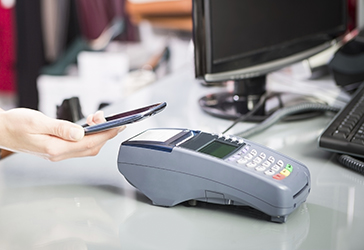
You have many decisions to make when shopping for a loan, and one of them is whether to obtain a secured or an unsecured loan. Whether you are familiar with the terminology of secured and unsecured loans or not, you are probably familiar with the underlying concepts. Secured loans get tied to an asset, like your home or automobile. Unsecured loans are not tied to any specific asset. Understanding these types of loans in more detail can help you borrow money wisely.
What is a Secured Loan?
Lenders often issue loans secured by a specific item of personal property. This item might be a house, a car, a boat, or even stocks or bonds. When property is used to secure a loan, the lender maintains ownership rights in the asset until the loan gets repaid. This means if you fail to repay the loan or otherwise meet the terms of your loan agreement, the lender has the legal right to seize and sell the property in order to repay the loan. That property is sometimes referred to as loan collateral.
With a secured loan, the lender also places a lien on the property. The lien indicates that should you sell the property the lender is entitled to get money to pay off the remaining loan balance before you receive any money from the sale.
The most common type of secured loan is a mortgage, which is secured by the house being purchased. If you stop making your mortgage payments, your lender could foreclose on the home and sell it to pay off the mortgage. If you sell your home, you have to pay off your mortgage immediately.
Advantages of Secured Loans
- You can borrow larger amounts because lenders are confident that they will get their money back, either from loan repayments or sale of the property.
- Secured loans typically come with a lower interest rate than unsecured loans because the lender is taking on less financial risk.
- Some types of secured loans, like mortgages and home equity loans, allow eligible individuals to take tax deductions for the interest paid on the loan each year.
Disadvantages of Secured Loans
- The personal property named as security on the loan is at risk. If you encounter financial difficulties and cannot repay the loan, the lender could seize the property.
- Typically, the amount borrowed can only be used to purchase a specific asset, like a home or a car. Home equity loans are an exception to this rule.
What is an Unsecured Loan?
An unsecured loan does not involve naming any specific property as collateral on the loan. Instead, the loan is issued on the basis of your ability to repay the loan. You might have to provide information about your income, savings, employment, or credit history. Some common types of unsecured loans include credit cards, student loans, and personal loans.
Advantages of Unsecured Loans
- You may be eligible to get an unsecured loan even if you do not own property to put up as collateral.
- The application process for an unsecured loan often goes much more quickly than the process of getting a secured loan.
Disadvantages of Unsecured Loans
- Typically, interest rates on unsecured loans are higher than rates on secured loans because the lender has a higher risk level of the loan not being repaid.
- Unsecured loans may be difficult to obtain if you do not have much positive credit history or don't have a regular income. In this case, you may need to find a co-signer with good credit history and solid income to sign the loan documents with you.





